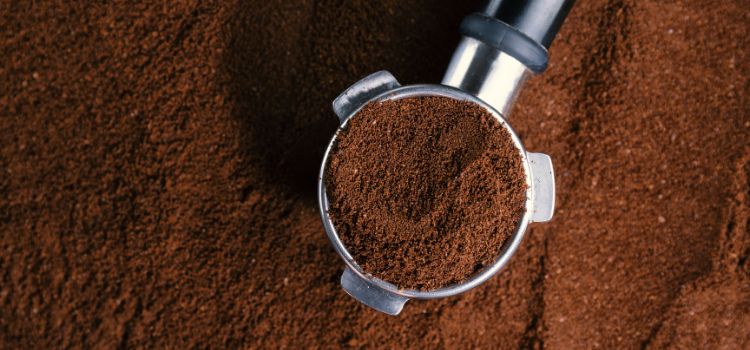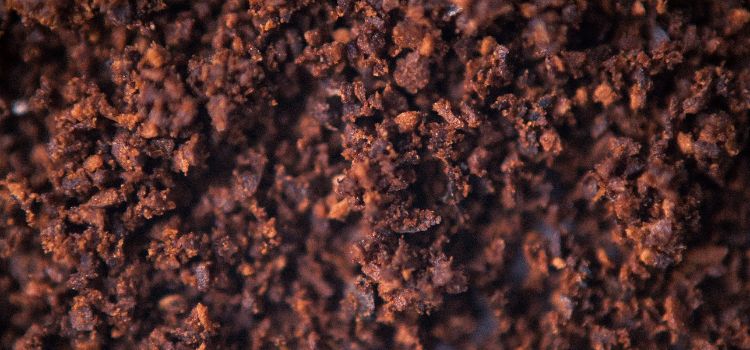Yes, you can drink coffee with meloxicam, as there is no known interaction between the two. Coffee lovers can rest assured that they can still enjoy their favorite morning pick-me-up while taking meloxicam.

Meloxicam serves as a nonsteroidal anti-inflammatory drug (NSAID) employed for alleviating pain and mitigating inflammation. It is frequently recommended for conditions like arthritis and musculoskeletal disorders. In contrast, coffee is a widely consumed beverage recognized for its invigorating effects attributed to its caffeine content.
As long as meloxicam is taken as directed by a healthcare professional, there should be no concerns about drinking coffee while on this medication. However, it is always advisable to consult with a healthcare provider for personalized advice regarding medication interactions.
What Is Meloxicam?
Meloxicam is a medication used to reduce pain and inflammation. Consuming coffee alongside Meloxicam is typically safe; however, it is advisable to exercise moderation to minimize the risk of potential side effects.
Introduction To Meloxicam
Meloxicam is often prescribed as a nonsteroidal anti-inflammatory drug (NSAID) to relieve pain and inflammation linked to various conditions such as osteoarthritis, rheumatoid arthritis, and gout. It belongs to the same class of medications as ibuprofen and naproxen, but it is known to be more selective in targeting the inflammation-causing enzymes. This makes meloxicam effective in reducing pain and swelling, while minimizing the potential side effects commonly associated with NSAIDs.
Benefits And Risks Of Meloxicam
Like any medication, meloxicam comes with its own set of benefits and risks. It is crucial to be aware of both aspects before deciding whether to take it or not.
Benefits of Meloxicam
Meloxicam offers various benefits in managing pain and inflammation:
- Relieves pain: Meloxicam effectively reduces pain caused by conditions like arthritis, making it easier to carry out daily activities.
- Reduces inflammation: The medication targets the enzymes responsible for inflammation, resulting in reduced swelling and discomfort.
- Improves mobility: By minimizing swelling and pain, meloxicam can improve joint mobility and overall function.
- Long-lasting relief: The prolonged effect of meloxicam allows for less frequent dosing, providing sustained pain relief for a longer duration.
Risks of Meloxicam
While meloxicam may offer benefits, it is essential to remain cautious of potential risks and side effects:
- Gastrointestinal issues: NSAIDs, including meloxicam, can sometimes cause stomach ulcers, bleeding, and other digestive problems. These risks can be minimized by taking meloxicam with food or medications that protect the stomach lining.
- Cardiovascular risks: The use of NSAIDs, particularly at higher doses or for an extended period, is linked to a slightly elevated risk of cardiovascular events such as heart attacks or strokes. Prior to initiating meloxicam, it is crucial to engage in a discussion about any cardiovascular concerns with your healthcare provider.
- Renal impairment: NSAIDs, including meloxicam, have the potential to cause or worsen kidney problems. People with pre-existing kidney disease or individuals taking diuretics should use caution when taking meloxicam.
- Allergic reactions: Although rare, some individuals may experience allergic reactions to meloxicam. Swelling, rash, itching, and difficulty breathing are signs of a potential allergic reaction and should be reported immediately to a healthcare professional.
It is crucial to remember that the benefits and risks of meloxicam will vary from person to person, depending on their medical history, overall health, and individual response to the medication. It is advisable to always seek personalized advice and guidance from a healthcare provider.
How Does Coffee Interact With Meloxicam?
If you’re curious about the interaction between coffee and meloxicam, a commonly used nonsteroidal anti-inflammatory drug (NSAID) for pain relief and inflammation reduction, you’ve found the right source. This article will delve into the pharmacokinetics of meloxicam and examine how coffee affects its absorption and metabolism. By understanding how coffee may influence the way our bodies process meloxicam, you can make informed choices about consuming these two substances together.
Pharmacokinetics Of Meloxicam
Before delving into the interaction between coffee and meloxicam, it’s important to grasp the pharmacokinetics of this medication. Meloxicam is typically prescribed to manage symptoms of conditions such as osteoarthritis and rheumatoid arthritis. When taken orally, meloxicam is rapidly absorbed by the body.
Let’s take a closer look at the key pharmacokinetic properties of meloxicam:
Pharmacokinetic Property Explanation
Absorption Meloxicam is well-absorbed in the gastrointestinal tract after oral ingestion.
Distribution Once absorbed, meloxicam is extensively distributed throughout the body.
Metabolism Primarily metabolized in the liver through the cytochrome P450 enzyme system.
Elimination Excreted via urine and feces, with a half-life of approximately 20 hours.
Understanding these pharmacokinetic aspects plays a crucial role in comprehending how coffee can potentially influence the effects of meloxicam.
The Effects Of Coffee On Meloxicam
Now that we have a basic understanding of meloxicam’s pharmacokinetics, let’s explore how coffee may impact its absorption and metabolism.
- Effect on Absorption: Coffee contains various compounds, including caffeine and polyphenols, which can affect the absorption of medications. Some studies suggest that the polyphenols in coffee may inhibit the absorption of meloxicam in the gastrointestinal tract. However, the exact extent of this interference and its clinical significance remain uncertain.
- Effect on Metabolism: The liver primarily metabolizes meloxicam through the cytochrome P450 enzyme system. Certain substances, including coffee, can potentially influence the activity of these enzymes. However, the available evidence regarding the impact of coffee on meloxicam metabolism is limited.Therefore, drawing conclusive findings on the substantial influence of coffee on the metabolism of meloxicam is challenging.
While these potential effects of coffee on the absorption and metabolism of meloxicam are worth considering, it is important to note that individual variations, such as genetic factors and overall health status, can also influence how these substances interact in the body. If you have concerns about drinking coffee while taking meloxicam, it is advisable to consult your healthcare provider for personalized guidance.
The Ultimate Answer: Should You Drink Coffee With Meloxicam?

Meloxicam is frequently prescribed as a nonsteroidal anti-inflammatory drug (NSAID) to alleviate pain and decrease inflammation. If you are a coffee lover and have been prescribed Meloxicam, you may be wondering whether it is safe to drink coffee while taking this medication. In this article, we will delve into this question and provide you with some essential information to help you make an informed decision.
Consulting Your Doctor
When it comes to combining medications with any beverage or food, it is always recommended to consult your doctor or healthcare provider. They are in the optimal position to assess your particular medical condition and offer tailored advice. YYour physician will take into account factors like your overall health, existing medications, and possible interactions before delivering a definitive response.
Considering Individual Factors
Although coffee is a widely enjoyed beverage, it is crucial to take individual factors into account when deciding whether it is safe to consume it with Meloxicam. Some factors to consider include:
- Your body’s tolerance to caffeine
- Any pre-existing medical conditions
- Other medications you may be taking
- The dosage of Meloxicam prescribed by your doctor
By taking these factors into account, you can have a better understanding of how coffee may affect your body when combined with Meloxicam.
Frequently Asked Questions Of Can I Drink Coffee With Meloxicam
Does Coffee Interact With Meloxicam?
Meloxicam can interact with coffee.
What To Avoid While Taking Meloxicam?
To avoid potential risks while taking meloxicam, do not exceed the recommended dosage. Avoid combining it with other nonsteroidal anti-inflammatory drugs (NSAIDs) and alcohol. It is important not to use meloxicam if you have a history of allergic reactions to NSAIDs or if you are in the third trimester of pregnancy.
How Long After Taking Medicine Can I Drink Coffee?
It’s best to wait at least one hour after taking medicine before drinking coffee.
Can You Drink Coffee With NSAIDs?
Yes, you can drink coffee with NSAIDs. However, it’s important to consult with your doctor or pharmacist first to ensure there won’t be any interactions or negative effects.
Conclusion
Based on the information provided, it is important to be cautious when combining coffee with meloxicam. While research on the topic is limited, there is potential for interactions between the two. Consulting with your healthcare professional before consuming coffee while taking meloxicam is recommended to ensure your safety and well-being.
Being mindful of your overall health and following medical advice is key in making informed decisions about medication and beverages.









